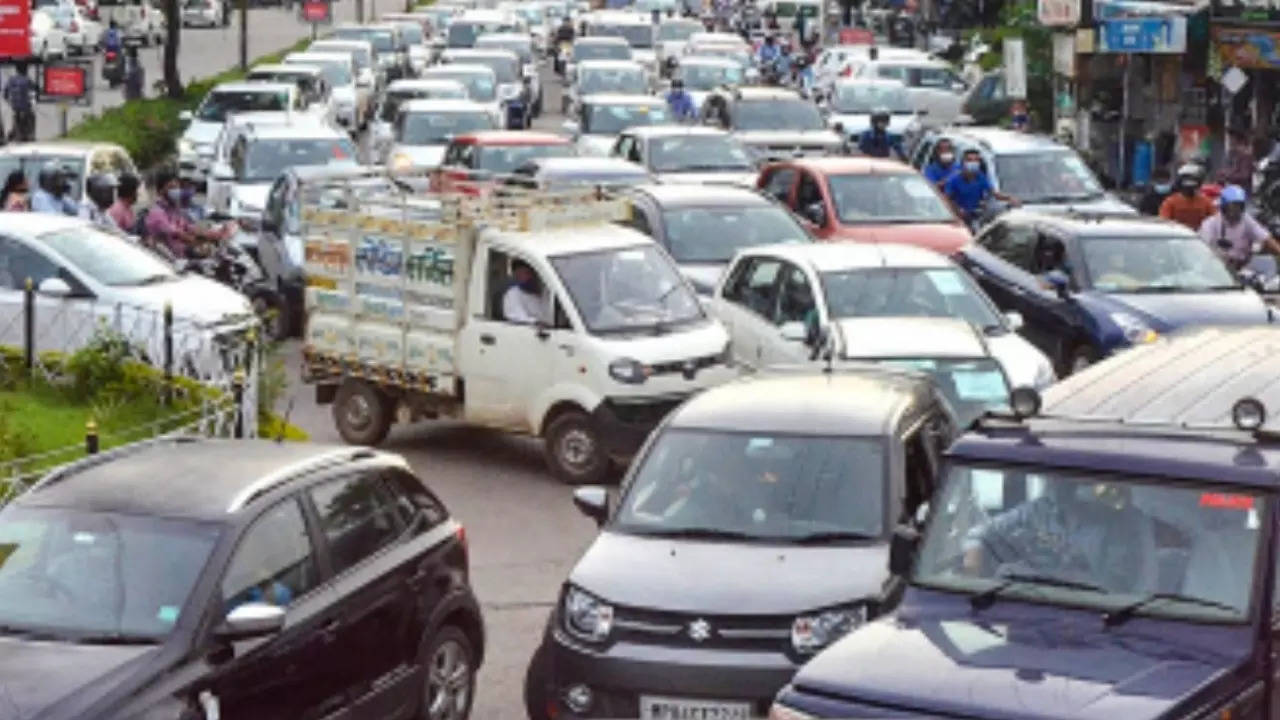NEW DELHI: Discussions around lowering import duty for high-end electric vehicle majors, including Tesla, have raised the temperature in the Indian automobiles sector with companies ranging from homegrown Mahindra & Mahindra and Tata Motors to Maruti Suzuki and Hyundai getting nervous.
Government officials told TOI the policy is still in the works, with multiple options on the table, and any decision will be taken only after consultation with auto companies from across the spectrum.“Lower import duty for a certain period is an option and no decision has been taken so far. The policy will take some time to evolve,” a senior official told TOI.
For years, Tesla has been lobbying for lower import duty for its vehicles and the plan is back on the table, although the Elon Musk-led company has evinced interest in setting up a manufacturing base for what could be a cheaper variant targeted at the Indian and the export market.
Companies such as Tata Motors and Mahindra & Mahindra are “completely opposed” to import duty relaxations as they run the risk of losing sales and business opportunity after lining up mega investments. “They are arguing that a duty cut now will not be in sync with the government’s previous commitment that those investing early and locally will be rewarded,” said a source. Both the companies already have vehicles on the road and are part of the PLI commitments too.
Some of the Japanese players, which are yet to enter the electric segment, are worried about the fate of their hybrids, something they are betting on till their EVs roll out on Indian roads.
Industry body Siam has had discussions with most of the companies and is now looking to formalise its views that will be shared with the government. “Broadly, these will be in line with the demands of the domestic industry and those invested here and will look at opposing any major relaxations on import duty,” said an industry source.
Sources said that German companies such as BMW, Mercedes-Benz, and the Volkswagen Group have adopted a wait-and-watch approach. “The German companies are still on the fringes, as they seek a ‘level-playing field’ on the matter. Some of these companies have already invested for assembly of electrics and would now want lower commitments on local investments to avail relaxation in duty against what Tesla will be asked to invest. If their demands are met, they will not staunchly oppose any relaxation on the import duty front. Otherwise, they will also join ranks with the Indian and other Japanese and Korean makers.”
Even within the government, officials are not convinced about the move as it will not just result in the government losing revenue but will signal a backing for the high-end segment instead of the current administration’s support for the common man.
Besides, an official said, the move will also reduce the negotiating space in the free trade agreements.
Those pushing the policy that seeks to lower tariffs for a limited period argue that more competition is expected to drive faster deployment of EVs.
Government officials told TOI the policy is still in the works, with multiple options on the table, and any decision will be taken only after consultation with auto companies from across the spectrum.“Lower import duty for a certain period is an option and no decision has been taken so far. The policy will take some time to evolve,” a senior official told TOI.
For years, Tesla has been lobbying for lower import duty for its vehicles and the plan is back on the table, although the Elon Musk-led company has evinced interest in setting up a manufacturing base for what could be a cheaper variant targeted at the Indian and the export market.
Companies such as Tata Motors and Mahindra & Mahindra are “completely opposed” to import duty relaxations as they run the risk of losing sales and business opportunity after lining up mega investments. “They are arguing that a duty cut now will not be in sync with the government’s previous commitment that those investing early and locally will be rewarded,” said a source. Both the companies already have vehicles on the road and are part of the PLI commitments too.
Some of the Japanese players, which are yet to enter the electric segment, are worried about the fate of their hybrids, something they are betting on till their EVs roll out on Indian roads.
Industry body Siam has had discussions with most of the companies and is now looking to formalise its views that will be shared with the government. “Broadly, these will be in line with the demands of the domestic industry and those invested here and will look at opposing any major relaxations on import duty,” said an industry source.
Sources said that German companies such as BMW, Mercedes-Benz, and the Volkswagen Group have adopted a wait-and-watch approach. “The German companies are still on the fringes, as they seek a ‘level-playing field’ on the matter. Some of these companies have already invested for assembly of electrics and would now want lower commitments on local investments to avail relaxation in duty against what Tesla will be asked to invest. If their demands are met, they will not staunchly oppose any relaxation on the import duty front. Otherwise, they will also join ranks with the Indian and other Japanese and Korean makers.”
Even within the government, officials are not convinced about the move as it will not just result in the government losing revenue but will signal a backing for the high-end segment instead of the current administration’s support for the common man.
Besides, an official said, the move will also reduce the negotiating space in the free trade agreements.
Those pushing the policy that seeks to lower tariffs for a limited period argue that more competition is expected to drive faster deployment of EVs.
